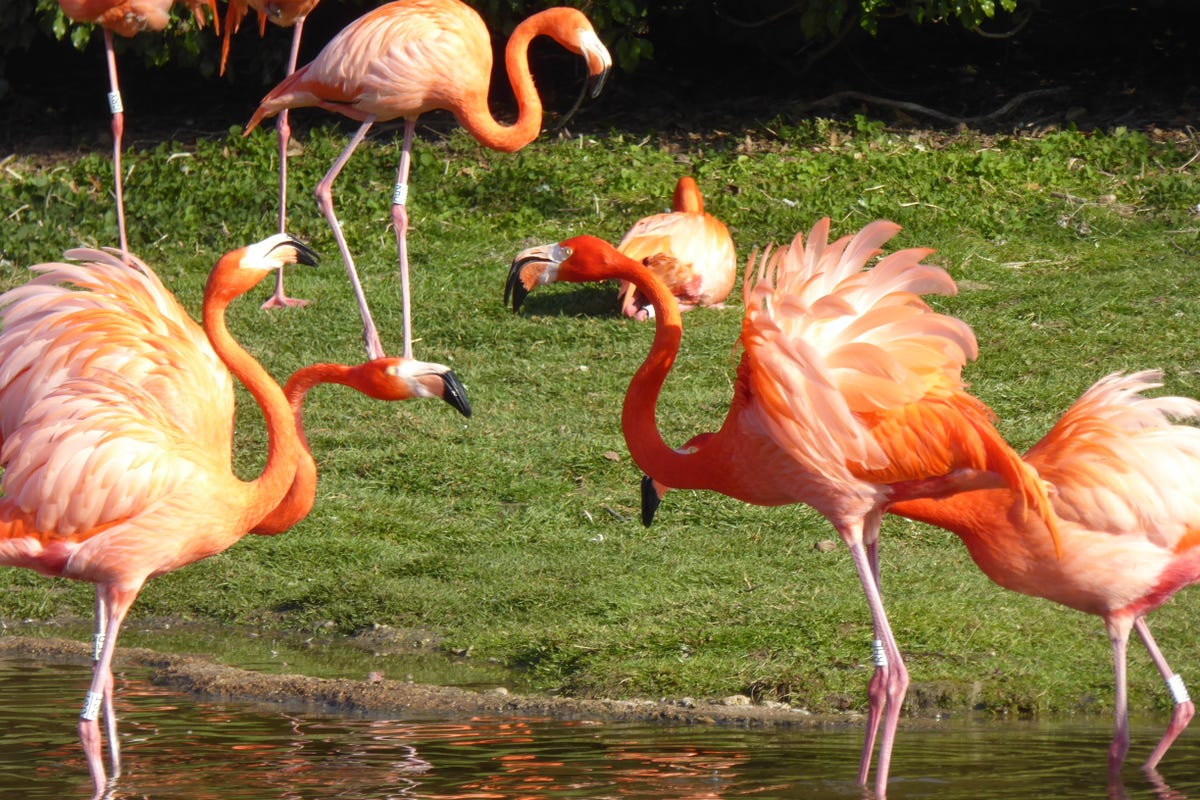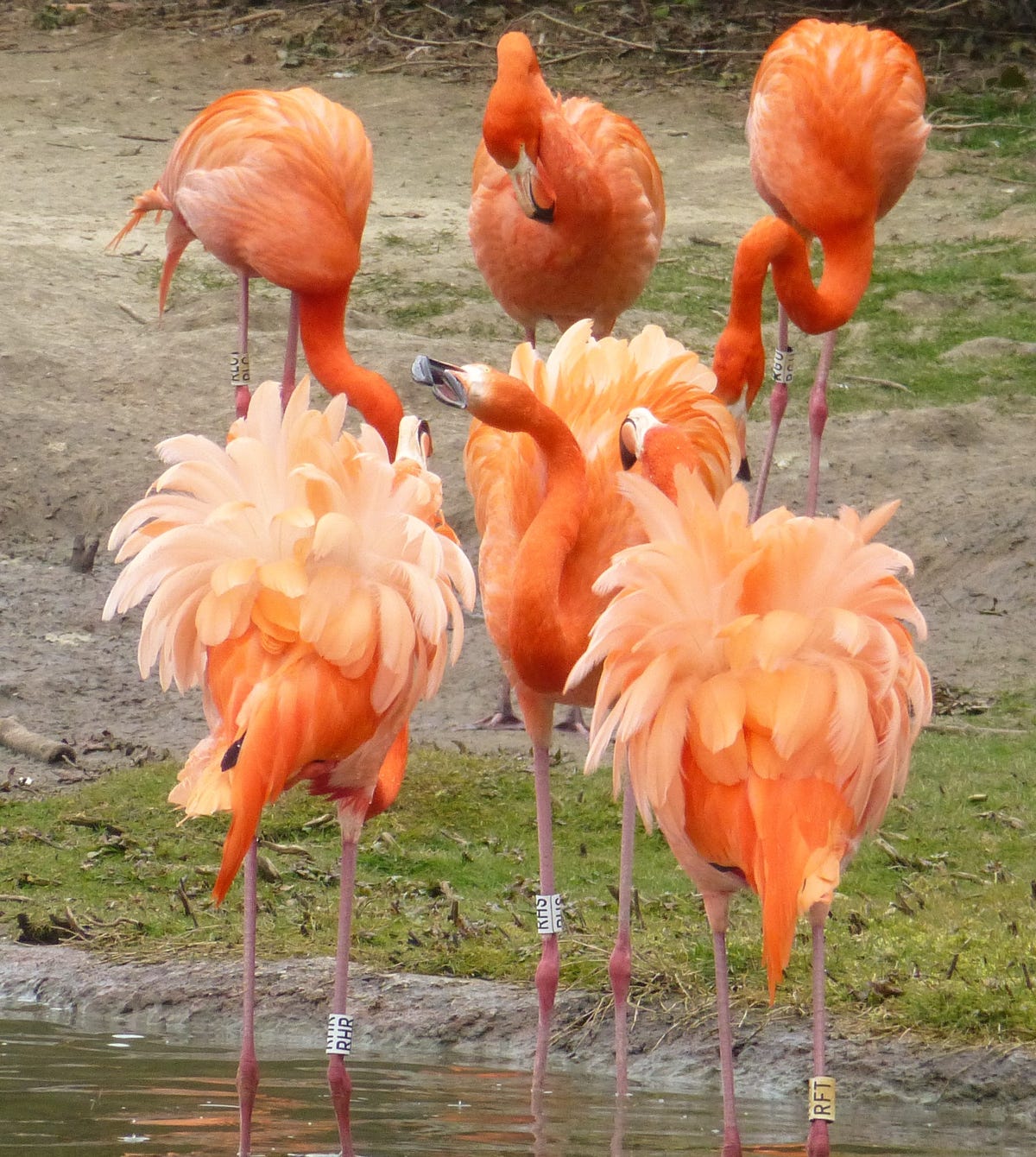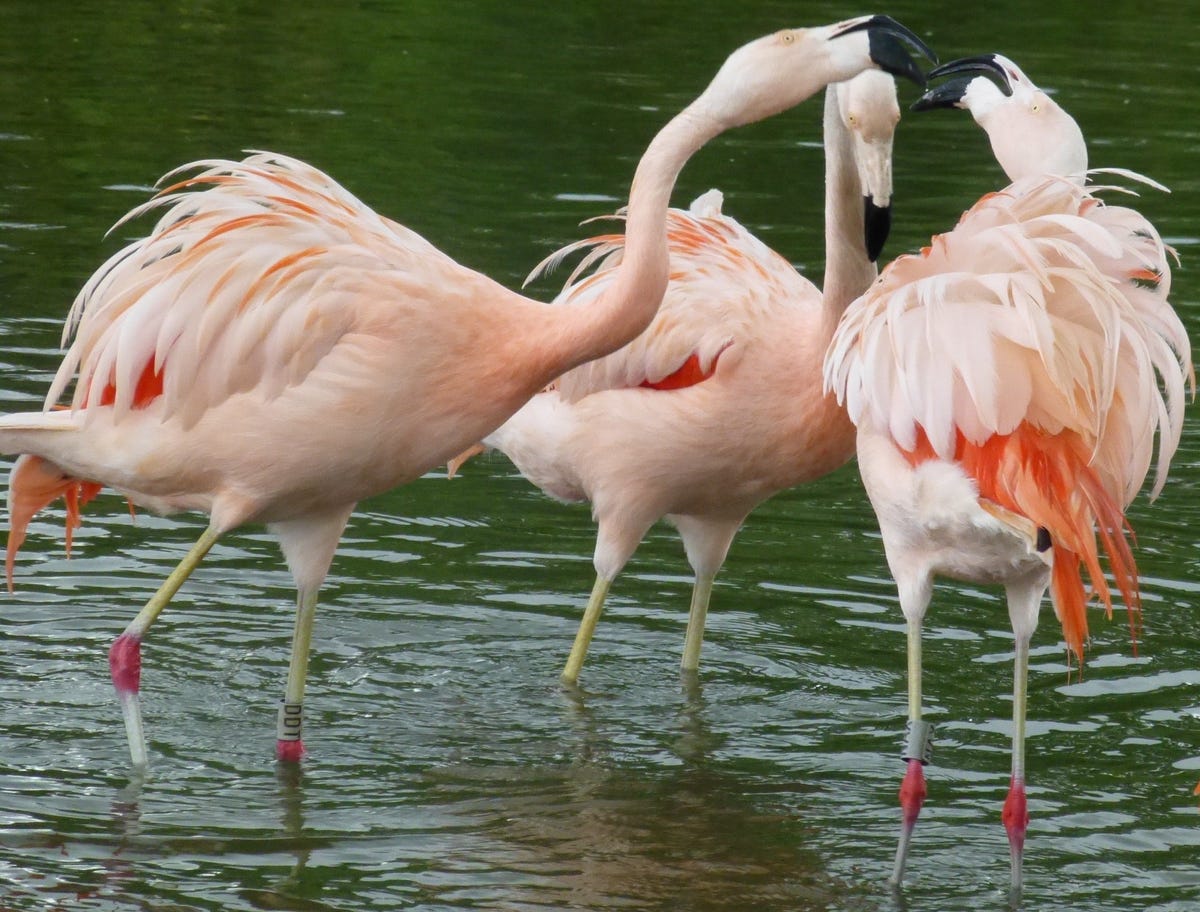Tina Fey and Rosalind Wiseman had no idea that their iconic line “on Wednesdays, we wear pink” from the Mean Girls script would one day be associated with a scientific study on flamingos.
In Mean Girls, the aforementioned statement is presented to the latest addition to a select group of students at a prestigious high school to ensure that their lunch group’s atmosphere remains intact.
Meanwhile, a recent publication in the Scientific Reports journal disclosed that experts from the University of Exeter and Wildfowl & Wetlands Trust discovered that flamingo communities in the Caribbean and Chile seem to form their own exclusive groups based on individual traits. It’s noteworthy that this announcement was made on a Wednesday.
Fortunately, these birds are already appropriately attired for this event.
“In light of this study, it has become apparent that the social interactions of flamingos are considerably more intricate than previously believed,” stated Paul Rose, who is associated with WWT and Exeter’s Centre for Research in Animal Behaviour and is the primary author of a report published in the journal Scientific Reports.

One Caribbean flamingo’s mate intervenes in a dispute with another couple of flamingos. Researcher Paul Rose noted that previous studies indicated flamingos form specific bonds with certain members of their flock, and his work demonstrates that these relationships are enduring and demonstrate a preference for kinship.
The team aimed to determine if there is a basis for the formation of these friend groups or if they are entirely haphazard. Specifically, do specific personality types and character traits influence the selection of one’s friends?
“Yes,” confirmed Rose. Following their observations of Caribbean and Chilean flamingos in separate groups, Rose and her team discovered that bold birds tend to have stronger and more consistent bonds with other bold birds. Meanwhile, submissive birds have a preference for socializing with peers who also exhibit submissive behavior. Here’s to introverts!

According to a statement from Fionnuala McCully of the University of Liverpool, who collected data for the study while at the University of Exeter, two Caribbean flamingos were observed teaming up on a fellow bird. She added that similar to humans, flamingos seem to establish different societal roles based on their individual personalities.
According to the study, it was found that Caribbean flamingos were more prone to having a specific role within their group as compared to Chilean flamingos. The researchers observed that in terms of group dynamics, aggressive flamingo groups tended to dominate their rivals and engage in more conflicts, while submissive birds adopted a different approach of supporting their more timid friends to stay resilient in challenging situations.
McCully stated that the diverse personality groups offer social assistance to their associates by aiding each other in the numerous conflicts that occur within flamingo colonies.

Assertive Chilean flamingos assert their dominance over a less assertive bird.
Paul Rose
Flamingos are not the only animals that have the ability to form social groups based on unspoken understanding. Chimpanzees and Assamese macaques also demonstrate similar behavior. Additionally, many animals have been observed to enjoy socializing with others of their species, including horses, dolphins, and even snakes.
Scientists discovered in 2020 that sperm whales have close and affectionate relationships, similar to those in a fraternity. Therefore, Rose suggested that additional research is necessary to comprehend the development of social behavior and enhance the welfare of animals in captivity.